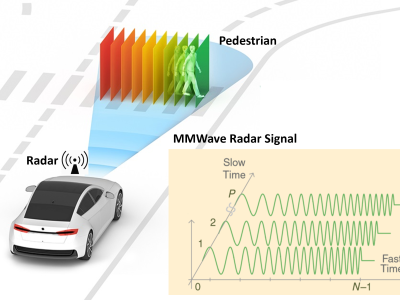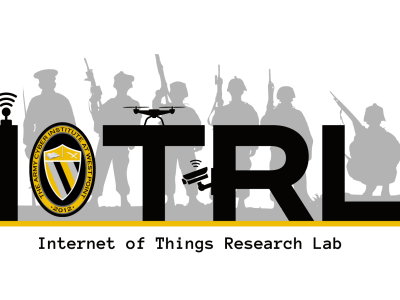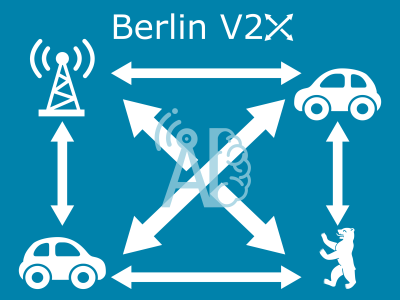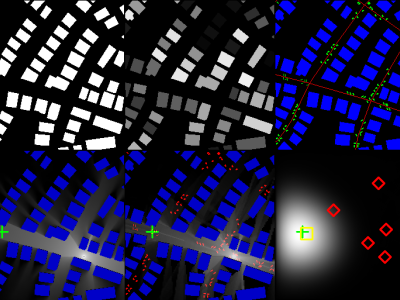CRAWDAD unm/blebeacon

- Citation Author(s):
-
Dimitrios Sikeridis (The University of New Mexico)Ioannis PapapanagiotouMichael Devetsikiotis
- Submitted by:
- CRAWDAD Team
- Last updated:
- DOI:
- 10.15783/c7-ca3s-z207
- Data Format:
 287 views
287 views
- Categories:
Abstract
The BLEBeacon dataset is a collection of Bluetooth Low Energy (BLE) advertisement packets/traces generated from BLE beacons carried by people following their daily routine inside a university building for a whole month. A network of Raspberry Pi 3 (RPi)-based edge devices were deployed inside a multi-floor facility continuously gathering BLE advertisement packets and storing them in a cloud-based environment. The focus is on presenting a real-life realization of a location-aware sensing infrastructure, that can provide insights for smart sensing platforms, crowd-based applications, building management, and user-localization frameworks.
last modified : 2019-03-12
nickname : blebeacon
institution : The University of New Mexico - UNM
release date : 2019-03-12
date/time of measurement start : September 15 2016
date/time of measurement end : October 17 2016
collection environment : The BLEBeacon Dataset is a collection of BLE advertisement packets gathered from a three-floor sensing infrastructure accommodating real-participants carrying iBeacons, following their routines during a one-month period. Possible uses of the dataset include network behavior and reliability detection in similar sensing environments, user mobility pattern extraction due to the experiments length, occupancy clustering with group identification/monitoring, and provision of facility management or crowd monitoring application insights considering real-life conditions.
network configuration : The utilized network architecture consists of a set of raspberry pi nodes that continuously gather packets through the wireless Bluetooth interface, and forward the information to a remote cloud-based database. The originator of the wireless Bluetooth packets are iBeacon Bluetooth devices that were provided to trial participants. The data collection was implemented with a publish-subscribe mechanism.
data collection methodology : N/A
sanitization : The dataset consists of raw data. The measured rssi values do not contain any privacy-related information.
limitation : N/A
Traceset
unm/blebeacon/RSSIReport
Collesction of RSSI values of intercepted BLE packets
- description: All advertisement packet receptions from occupant beacon devices are directly reported to the server with a message that contains the beacon/user ID, the packets Received Signal Strength Indicator (RSSI), a reception timestamp, and finally the ID of the RPi that received the advertisement.
- measurement purpose: User Mobility Characterization
unm/blebeacon/RSSIReport Traces
- RSSIReport: Collesction of RSSI values of intercepted BLE packets
- format:
Format: .csv
Values: Beacon/user ID,
Packets Received Signal Strength Indicator (RSSI),
Timestamp, ID of the RPi that received the advertisement
unm/blebeacon/CheckReport
Collection of continuous presence in the proximity of a location scanner
- description: Each RaspberryPi scanner continuously manages a list of current occupants/users in its proximity. A check in timestamp is created during occupants initial entry, and while this beacon is still being detected by the RPi, a last seen timestamp is updated. When the beacon is no longer detected (advertisement packets are no longer being received) a Check-In/Check-Out report packet is created and sent to the server containing the beacon/user ID, the check in timestamp, the last seen timestamp, and finally the ID of the RPi as seen in Fig. 3. A thirty second period is used to ensure that the occupant exited the RPi proximity.
- measurement purpose: User Mobility Characterization
unm/blebeacon/CheckReport Traces
- CheckReport: Collection of continuous presence in the proximity of a location scanner
- format:
Format: .csv
Values: Beacon/user ID, the check-in timestamp,
the last seen timestamp, ID of the RPi
Instructions:
The files in this directory are a CRAWDAD dataset hosted by IEEE DataPort.
About CRAWDAD: the Community Resource for Archiving Wireless Data At Dartmouth is a data resource for the research community interested in wireless networks and mobile computing.
CRAWDAD was founded at Dartmouth College in 2004, led by Tristan Henderson, David Kotz, and Chris McDonald. CRAWDAD datasets are hosted by IEEE DataPort as of November 2022.
Note: Please use the Data in an ethical and responsible way with the aim of doing no harm to any person or entity for the benefit of society at large. Please respect the privacy of any human subjects whose wireless-network activity is captured by the Data and comply with all applicable laws, including without limitation such applicable laws pertaining to the protection of personal information, security of data, and data breaches. Please do not apply, adapt or develop algorithms for the extraction of the true identity of users and other information of a personal nature, which might constitute personally identifiable information or protected health information under any such applicable laws. Do not publish or otherwise disclose to any other person or entity any information that constitutes personally identifiable information or protected health information under any such applicable laws derived from the Data through manual or automated techniques.
Please acknowledge the source of the Data in any publications or presentations reporting use of this Data.
Citation:
Dimitrios Sikeridis, Ioannis Papapanagiotou, Michael Devetsikiotis, unm/blebeacon, https://doi.org/10.15783/c7-ca3s-z207 , Date: 20190312
















